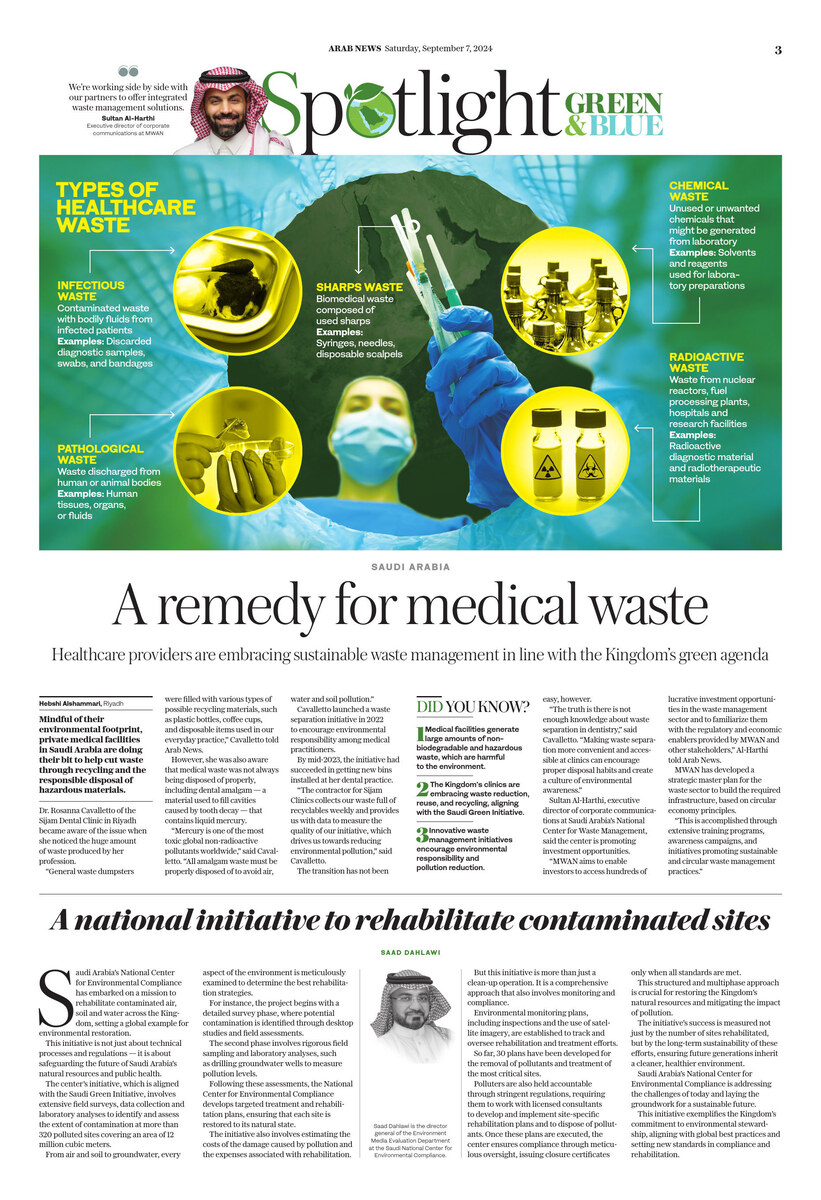RIYADH: When one imagines the worst culprits for commercial waste, many would rightly think of fast fashion, obsolete technology, and food retail. However, one surprisingly prolific offender is the medical community — responsible for vast amounts of non-biodegradable and often hazardous waste.
Mindful of their environmental footprint, private medical facilities in Saudi Arabia are doing their bit to help cut waste by encouraging the reduction, reuse, and recycling of packaging, using materials that are biodegradable, and responsibly disposing of dangerous substances.
Furthermore, many medical facilities are adopting technologies to improve energy efficiency and conserve water in line with the Kingdom’s promotion of corporate social responsibility and its commitment to sustainable development.
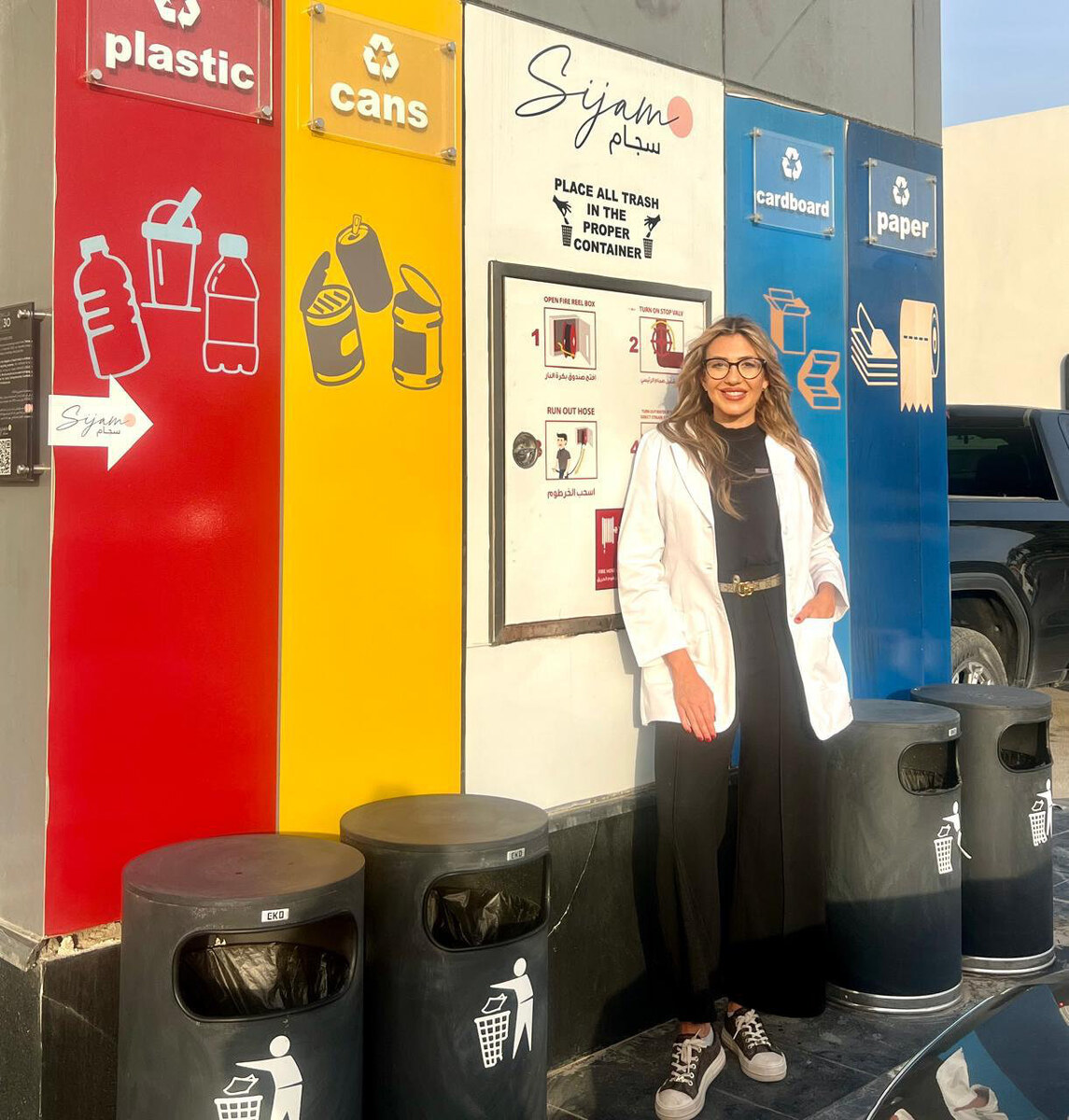
Dr. Rosanna Cavalletto. (Supplied)
Dr. Rosanna Cavalletto, who heads the Strategic Development Department at the Sijam Dental Clinic in Riyadh, became aware of the issue when she noticed the huge amount of waste produced by her profession.
“General waste dumpsters were filled with various types of possible recycling materials, such as plastic bottles, coffee cups, and disposable items used in our everyday practice,” Cavalletto told Arab News.
However, she was also aware that medical waste was not always being disposed of properly, including “specific types of hazardous wastes, such as dental amalgam,” she said.
Indeed, dental amalgam — a material used to fill cavities caused by tooth decay — consists of a powdered alloy made up of silver, tin, and copper, combined with liquid mercury.

“We cannot forget that mercury is one of the most toxic global non-radioactive pollutants worldwide,” said Cavalletto. “All amalgam waste must be properly disposed of to avoid air, water and soil pollution thereafter.
“Dental practices generate large quantities of waste, including household (non-food) waste, improper hygiene, clinical, hazardous, and food waste, which should be managed appropriately.”
Cavalletto, who authored the book “Save Your Health, Save the Planet: Dentistry for a Bright, Green Future,” launched the “non-medical waste separation” initiative in 2022 to encourage environmental responsibility among medical and cosmetic practitioners.
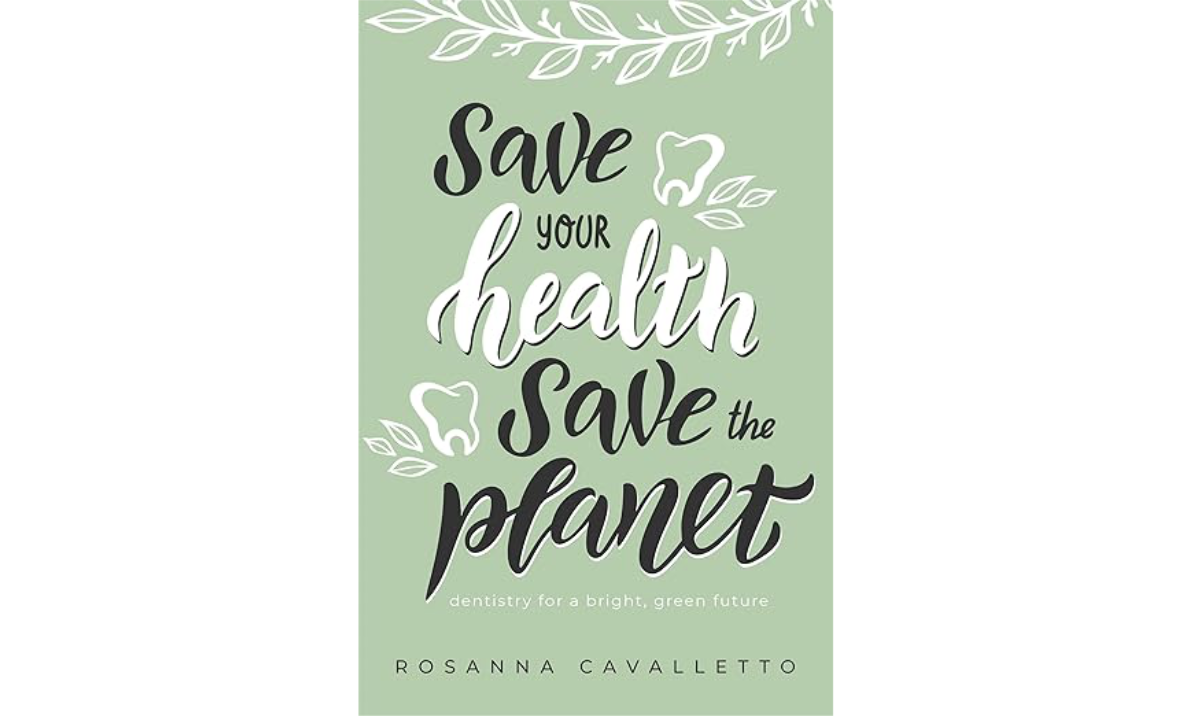
By mid-2023, the initiative had succeeded in getting new bins installed at Cavalletto’s dental practice, providing different compartments to separate different kinds of waste. But the waste management firm that collected them had another trick up its sleeve.
“The contractor for Sijam Clinics collects our waste full of recyclables weekly and provides us with data to measure the quality of our initiative, which drives us towards reducing environmental pollution,” said Cavalletto.
DID YOUKNOW?
• Medical facilities generate large amounts of non-biodegradable and hazardous waste, which are harmful to the environment.
• The Kingdom’s clinics are embracing waste reduction, reuse, and recycling, aligning with the Saudi Green Initiative.
• Innovative waste management initiatives encourage environmental responsibility and pollution reduction.
• Financial incentives and awareness campaigns are crucial for improving waste management in the medical sector.
The transition to better waste management among clinics has not been easy, however. “It was a difficult process with slow steps,” said Cavalletto.
“The truth is there is not enough knowledge about waste separation in dentistry. Making waste separation more convenient and accessible at clinics can encourage proper disposal habits and create a culture of environmental awareness.”
The picture is similar elsewhere in the Saudi medical sector. Abdulrahman Al-Rifai, an environmental engineer at the King Abdulaziz Royal Reserve Development Authority, said clinics are gradually improving their sustainability practices.
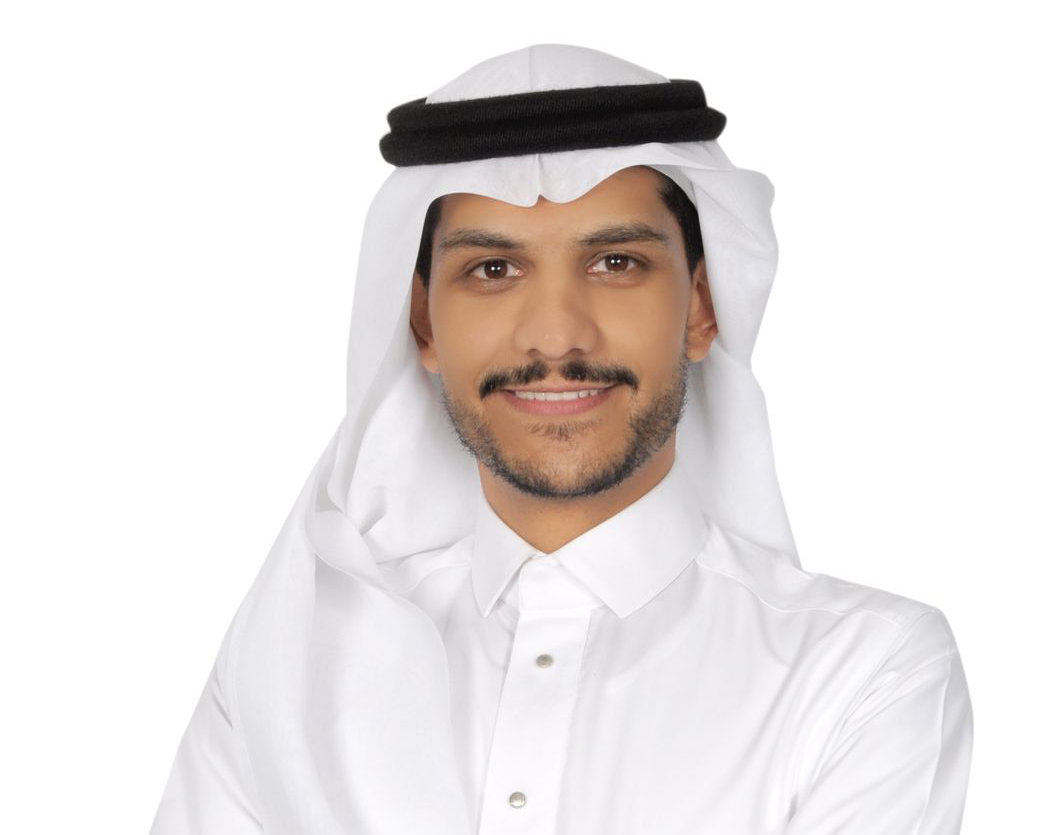
Abdulrahman Al-Rifai. (Supplied)
“In line with the Saudi Green Initiative, which focuses on reducing emissions, the sector can contribute significantly by adopting environmentally friendly technologies and waste management strategies,” Al-Rifai told Arab News.
“In recent times, companies have increasingly cooperated in the recycling process within the Kingdom to promote efficiency and resource recovery. However, coordination and infrastructure development remain critical for optimal performance.”
The Saudi Green Initiative, launched by Crown Prince Mohammed bin Salman in 2021, pays close attention to circular economy principles, promoting partnerships and innovation in the recycling industry.
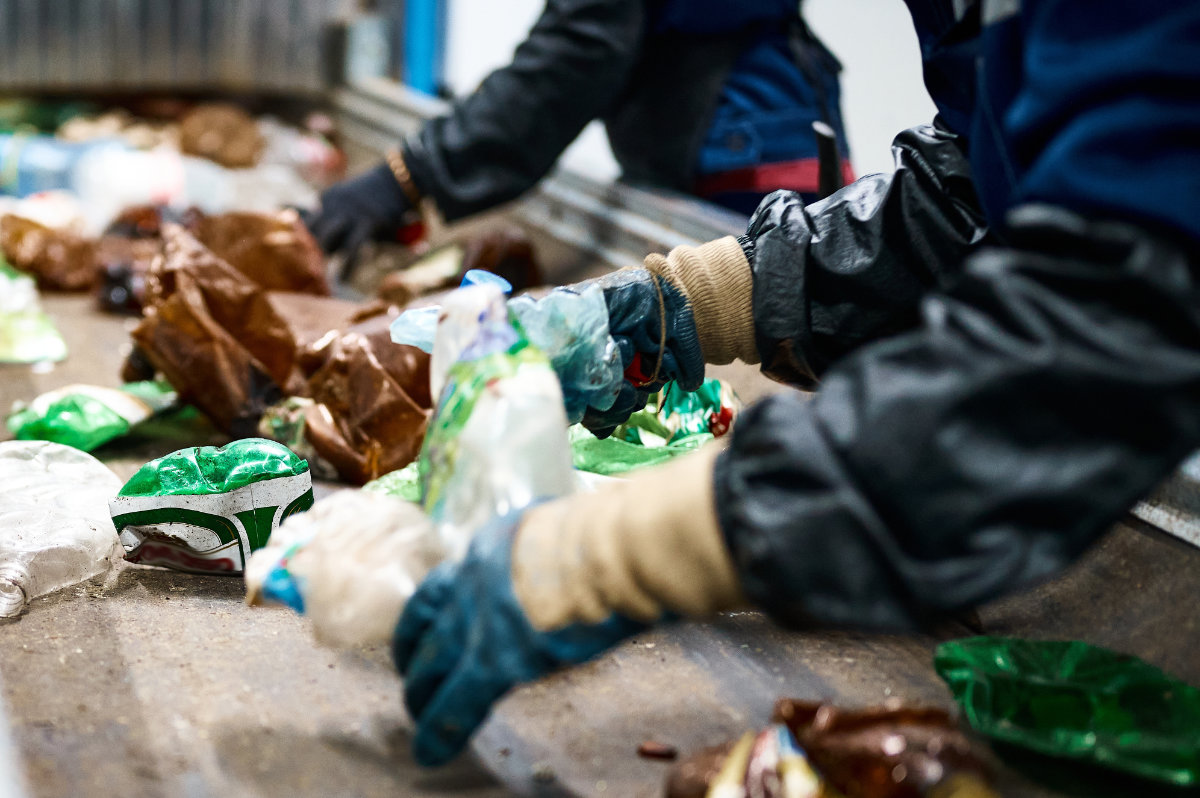
Integrating recycling into waste management systems, boosting research and development, and encouraging public participation are essential steps to achieving the goals of the Saudi Green Initiative, says Abdulrahman Al-Rifai, an environmental engineer. (Shutterstock)
Al-Rifai, who worked in environmental engineering at Panasonic for four years, believes the medical sector requires strong government support, including financial incentives and awareness campaigns, if it is to improve its waste management.
He believes integrating recycling into waste management systems, boosting research and development, and encouraging public participation are essential steps. The Saudi Green Initiative provides a clear road map for achieving a more sustainable economy, he added.
Abdullah Aljumah, general manager at the Riyadh-based First Saudi Contracting Co., says environmental initiatives in the medical sector are integral to sustainable development and social responsibility.
The use of environmentally friendly materials, especially those that are biodegradable and low-toxic, also contributes to reducing negative environmental impacts, he told Arab News.
Opinion
This section contains relevant reference points, placed in (Opinion field)
Aljumah wants to see more support for research aimed at improving medical technologies and reducing their environmental impacts. Such initiatives, he says, are critical to balancing effective healthcare and environmental conservation.
To make these ambitions a reality, however, waste management firms will require sufficient investment and proper regulation.
Sultan Al-Harthi, executive director of corporate communications at Saudi Arabia’s National Center for Waste Management, known as MWAN, said that the center is promoting investment opportunities in the waste management sector.
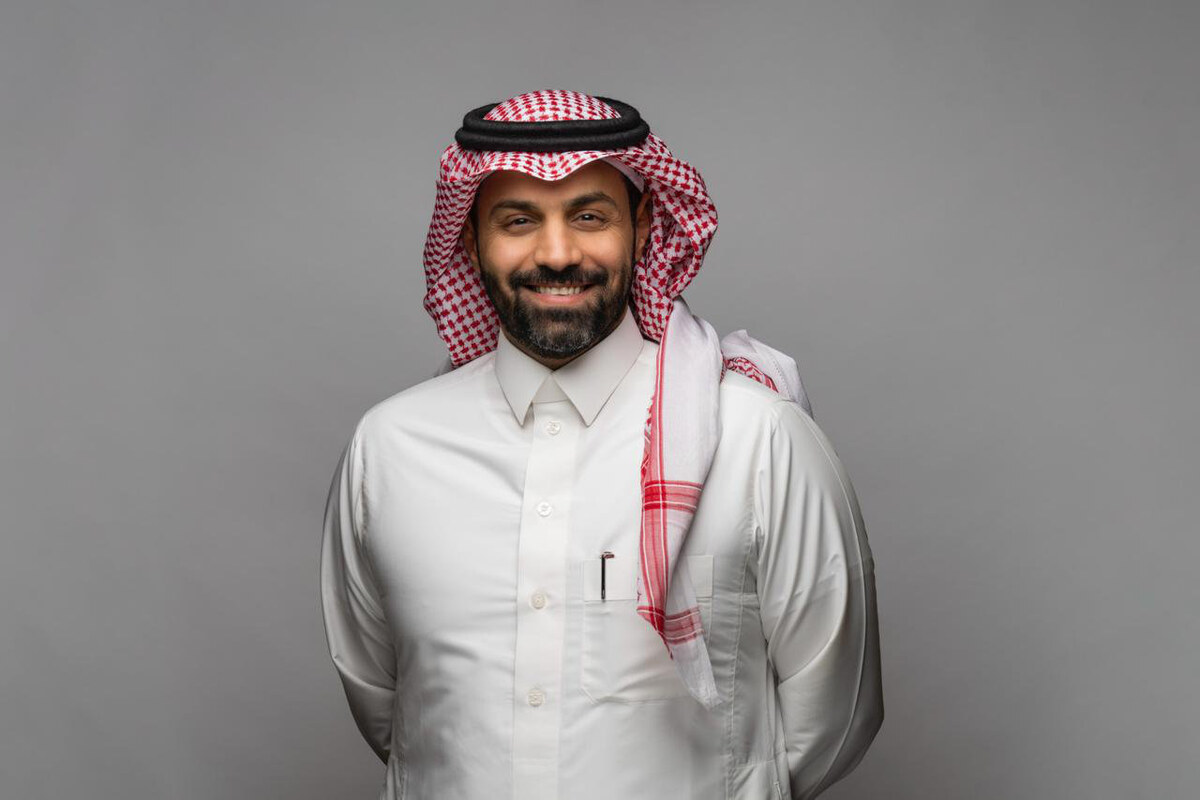
Sultan Al-Harthi. (Supplied)
“MWAN aims to enable investors to access hundreds of lucrative investment opportunities in the waste management sector and to familiarize them with the regulatory and economic enablers provided by MWAN and other stakeholders to support the feasibility and success of these projects,” Al-Harthi told Arab News.
Over the past three years, MWAN has developed a comprehensive strategic master plan for the waste sector to build the required infrastructure based on fundamental circular economy principles.
“We’re encouraging innovative initiatives and building the necessary capacities to achieve the Kingdom’s Vision 2030 objectives,” said Al-Harthi.
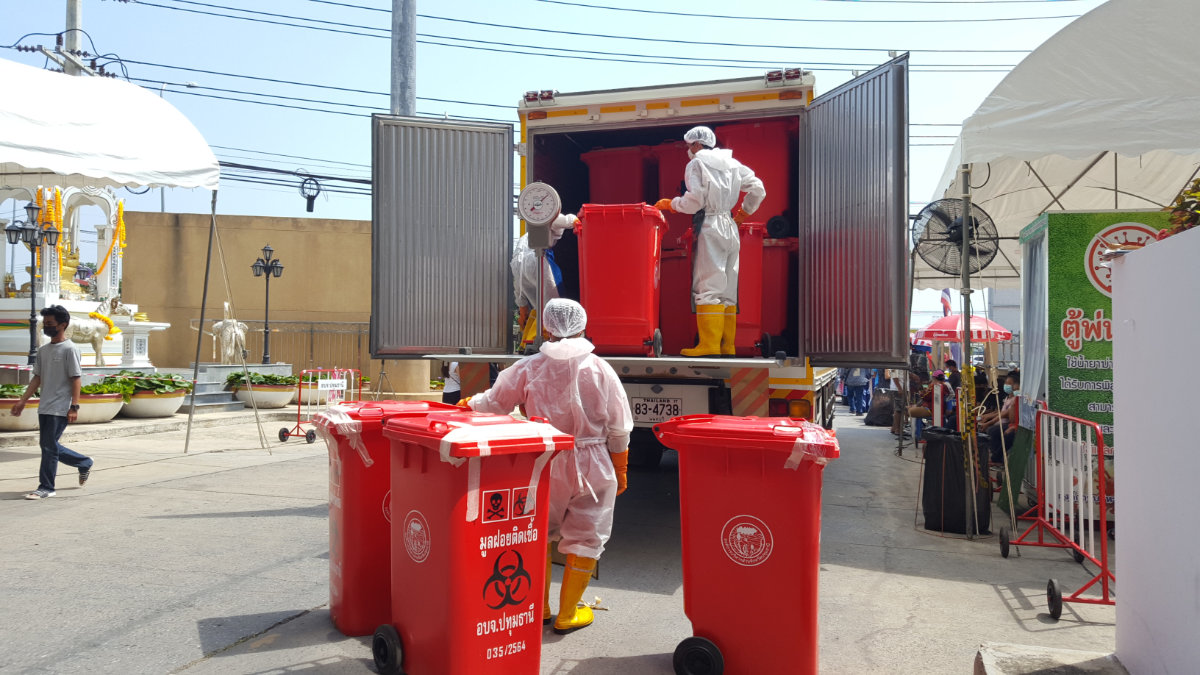
Caption
“This is accomplished through extensive training programs, awareness campaigns, and initiatives promoting sustainable and circular waste management practices.”
He added: “We’ve focused on capacity building for workers across the waste management system in all sectors — government, private, and non-profit. Simultaneously, we’re increasing public awareness to achieve the sector’s objectives.
“We’re working side by side with our partners to offer integrated waste management solutions. Our goal is to enhance the capacity of private sector companies to channel investments towards environmental, economic, and social sustainability.”
